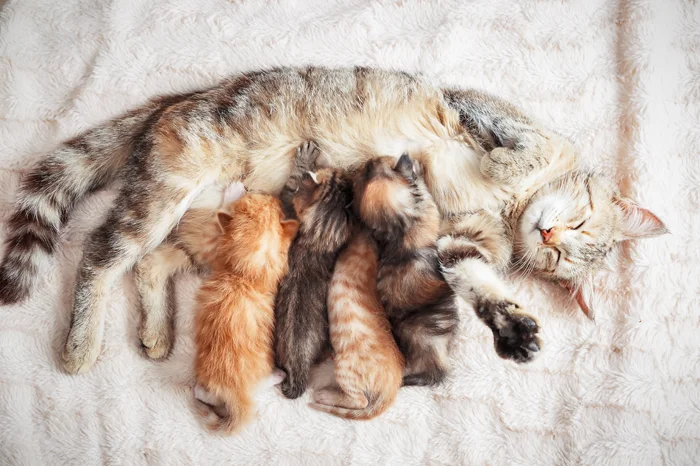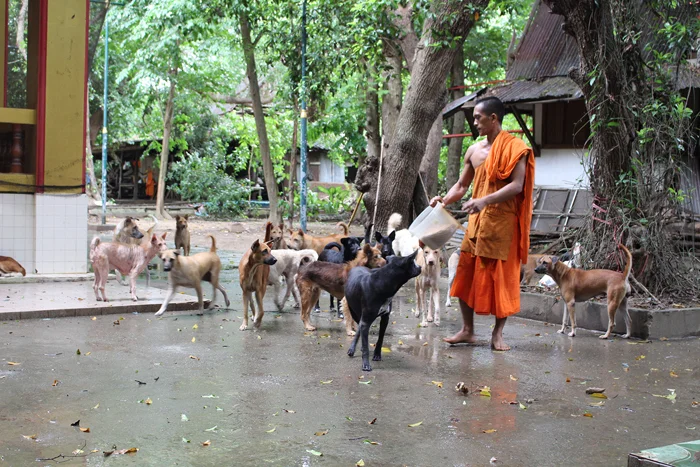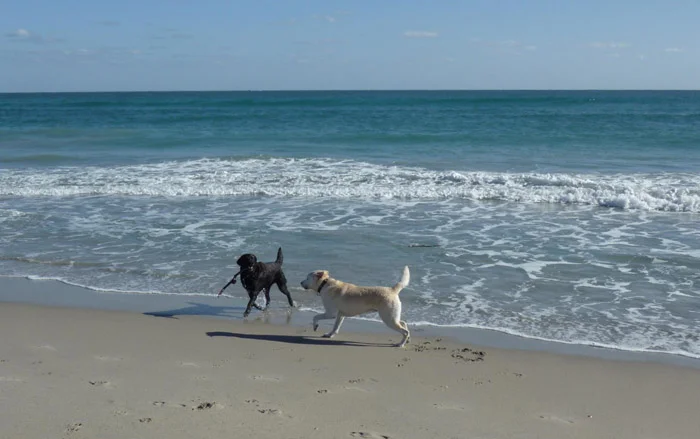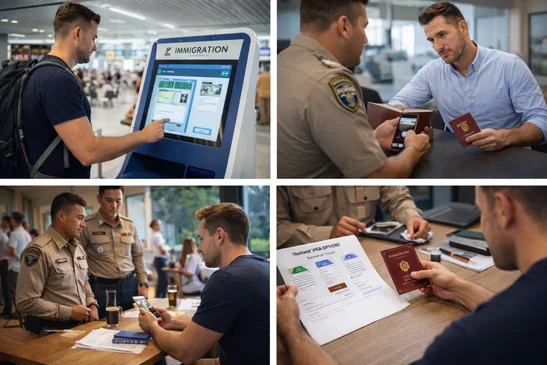We’ve all seen them as nearly every corner of the island has its fair share of unclaimed dogs and cats. You’ll notice the cats creeping around stalking small creatures and the dogs scratching themselves and sometimes chasing after the odd motorbike when they’re feeling frisky. So where do they all come from, why are they there, and how do they all get fed?

Cats and kittens Cr: nautilusonlineshop.com
It’s probably unnecessary to go into the details of the birds and the bees and how babies are made, but quite often cats and dogs make many of them. Cats can have up to a dozen kittens with four being the average, and dogs can also have up to a dozen with 5-6 being the average. Many do not make it to adulthood with snakes, cars, and disease making survival challenging. That being said, one mustn’t look far to see that their populations certainly aren’t suffering.

The dog was abandoned at the temple. | Cr: www.matichon.co.th
A common solution seen in villages around Thailand is for locals to drop off unclaimed or unwanted animals at local temples. Many Thais see this as a humanitarian option as monks won’t hurt animals and they often have a surplus of donated food to share with the animals. However, temple resident’s don’t necessarily welcome the burden of having hordes of dogs and cats fighting and defecating everywhere and will post signs saying so. Unfortunately for animals that become a nuisance and aren’t relocated, they may be poisoned, especially if they harass farm animals or people.
Of course an effective way to keep populations in check would be to spay and neuter animals before the population gets out of control. However, due to Thai Buddhist beliefs in karma, it is believed that sterilizing animals can result in the same effect on themselves leaving them with the inability to have children. Times are changing though and the practice is becoming more widespread.
Not all animals wandering around on their own are feral street animals though. It’s common to see cats and dogs with collars which doesn’t necessarily mean that it is the pet of an individual, rather an indication that it is accepted in that area, is being fed, and shouldn’t be relocated (or poisoned).

Dog on the beach Cr: www.bringfido.com
In recent years there has been a noticeable uptick in pet ownership in Phuket. There are many accounts of people walking dogs on leashes in neighborhoods and beaches and the resident unleashed dogs starting fights with pets. Unfortunately, the prevailing cultural attitude mostly remains the same throughout Thailand. Generally, it is safe to say there hasn’t really been a presumption that one can walk their chihuahua through other dogs' territory and not expect problems. Most of the beaches in Phuket have resident dogs that rarely cause problems with people, but are of course territorial towards other dogs. Whatever one’s view on the subject may be, this is simply how it is and should be understood when considering adopting a dog.
Fortunately the vast majority of street/beach dogs are quite used to having various people around and are not particularly aggressive. The most common situation encountered is to be chased while on a motorbike. The typical reaction of locals is to simply stop as it is the chase that the dogs are after and they quickly lose interest once stopped. Other scenarios are dogs barking and being slightly aggressive after dark at the beach. The most effective approach here is to avoid eye contact and ignore them, responding with aggression usually just exacerbates the problem. In the unfortunate event that you are bit by an unknown dog (or cat, you never know), it is very important to visit a clinic for a rabies shot immediately.



















